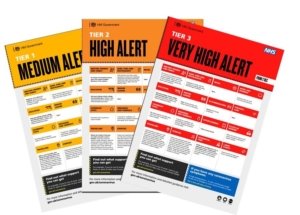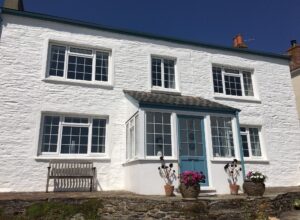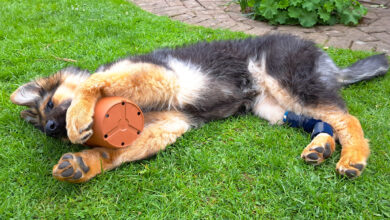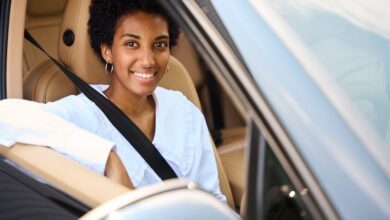How to manage slips and trips risk in a holiday let

Last Updated on September 22, 2025 by admin
Slips and falls in your holiday let could create serious legal challenges for you as the property owner. Guests expect safe conditions and if hazards such as wet floors, loose rugs, poor lighting, or uneven surfaces cause an accident, you may be found negligent. This could lead to you facing personal injury claims leading to compensation payouts for medical costs, loss of income, or pain and suffering.
Slips and trips risk control
If you have failed to take reasonable precautions or ignored safety standards, you may be held responsible. This could lead to the insurance claim you make to cover legal costs being denied by your insurer. Beyond the financial impact of someone being injured at your property, the reputational damage and negative reviews that may arise could also impact on your business.

To discuss Home Insurance for your holiday home, cottage complex, holiday let, or second home, contact us today.
Call: 01237 429 444
Request a Quote: boshers.co.uk/get-your-quote/
Slips, trips and the law for holiday let owners
HASAWA duties for slips & trips
The main statutory legislation is the Health and Safety at Work Act (HASAWA) supplemented by more specific regulations for example, the Management of Health and Safety at Work Regulations. This is criminal law intended to protect employees and others. The Act sets out a number of general duties to ensure people’s health and safety. It applies to any organisation which has at least one employee or has control of premises in certain circumstances. Failure to meet these duties could lead to prosecution resulting in a fine and – in extreme circumstances – a custodial sentence. If you employ gardeners, cleaners, volunteers or any other type of employee, you must:
Protect your employees whilst they are at work – ensuring, so far is reasonably practicable, their health, safety and welfare. This includes providing a safe, well-maintained workplace including any access to or from it. You must also provide them with a safe system of working and any necessary information.
Protect others who are not your employees, but may be affected by your work – ensuring, so far is reasonably practicable, that they are not exposed to risks to their health and safety. ‘Others’ could include students, members of the public, and volunteers.
One important consideration is the duty as an employer to prepare (and revise as necessary) a written health and safety policy statement. Amongst other things, the policy should include important information about the prevention of slips and trips.

How does Public Liability Insurance safeguard your holiday let business?
Public Liability Insurance provides protection for holiday let homeowners by covering legal and financial risks if a guest or third party suffers injury or property damage whilst on the premises. Accidents such as slips, trips, falls, or damage to a visitor’s belongings can lead to compensation claims. Without insurance, homeowners may have to pay legal fees, medical costs, or damages out of pocket, which can be financially devastating. Public Liability Insurance not only offers peace of mind but also demonstrates a responsible approach to guest safety, ensuring that homeowners are safeguarded against unexpected incidents and potential reputational harm.
What is and isn’t covered in a Public Liability policy?
The lists below outline what is covered and what isn’t covered in a Public Liability Insurance policy. Please note: if you are unclear about any part of your existing Holiday Let Insurance, our team of insurance experts can explain any aspect of your policy so that you know exactly what you’re covered for.
Covered |
Not Covered / Excluded |
| Injury to guests or visitors (e.g., slips, trips, falls) | Deliberate or criminal acts causing injury/damage |
| Damage to third-party property (e.g., guest belongings) | Claims arising from poor maintenance or neglect |
| Legal defence costs if a claim is made | Injury to employees (needs separate Employer’s Liability cover) |
| Compensation payouts for medical expenses, loss of earnings, or damages | Business activities outside the holiday let (e.g., hosting events) |
| Accidents on the property where reasonable precautions were taken | High-risk facilities (pools, hot tubs, trampolines, boats) unless specifically declared |

How can you mitigate the risk of accidents at your property?
Take necessary precautions to prevent slips, trips and falls. Usually, this will include:
- Proper maintenance of floors, paths, walkways, and other traffic routes
- Keeping lighting working and in good repair
If you own a listed holiday let or a heritage cottage complex, your buildings may have uneven stone steps or narrow paths and walkways. Age-worn flagstones and old pathways leading through the garden and around your property can become slippery after rain. If uneven paths and steps cannot be rectified, clear signs indicating that they can be hazardous can warn your guests to take necessary care when using them. Keep steps free from leaves and other debris in autumn and grit them in the winter if there is frost or snow.
External lighting can easily become damaged or dysfunctional over time and may need more frequent checks where footpaths are used regularly, particularly in autumn and winter months.
Keep all rooms clean, light, and in a good state of repair.
Install handrails and guards on stairs and if necessary, walkways and outside steps.
To discuss Home Insurance for your holiday home, cottage complex, holiday let, or second home, contact us today.
Call: 01237 429 444
Request a Quote: boshers.co.uk/get-your-quote/
This guidance is provided for information purposes and is general and educational in nature and does not constitute legal advice. You are free to choose whether or not to use it and it should not be considered a substitute for seeking professional help in specific circumstances.
Boshers® Ltd are authorised and regulated by the Financial Conduct Authority under register number 224623. Registered in England No. 02946794. Registered office: Affinity House, Bindon Road, Taunton, Somerset, TA2 6AA. Calls may be recorded for use in quality management, training and customer support.




